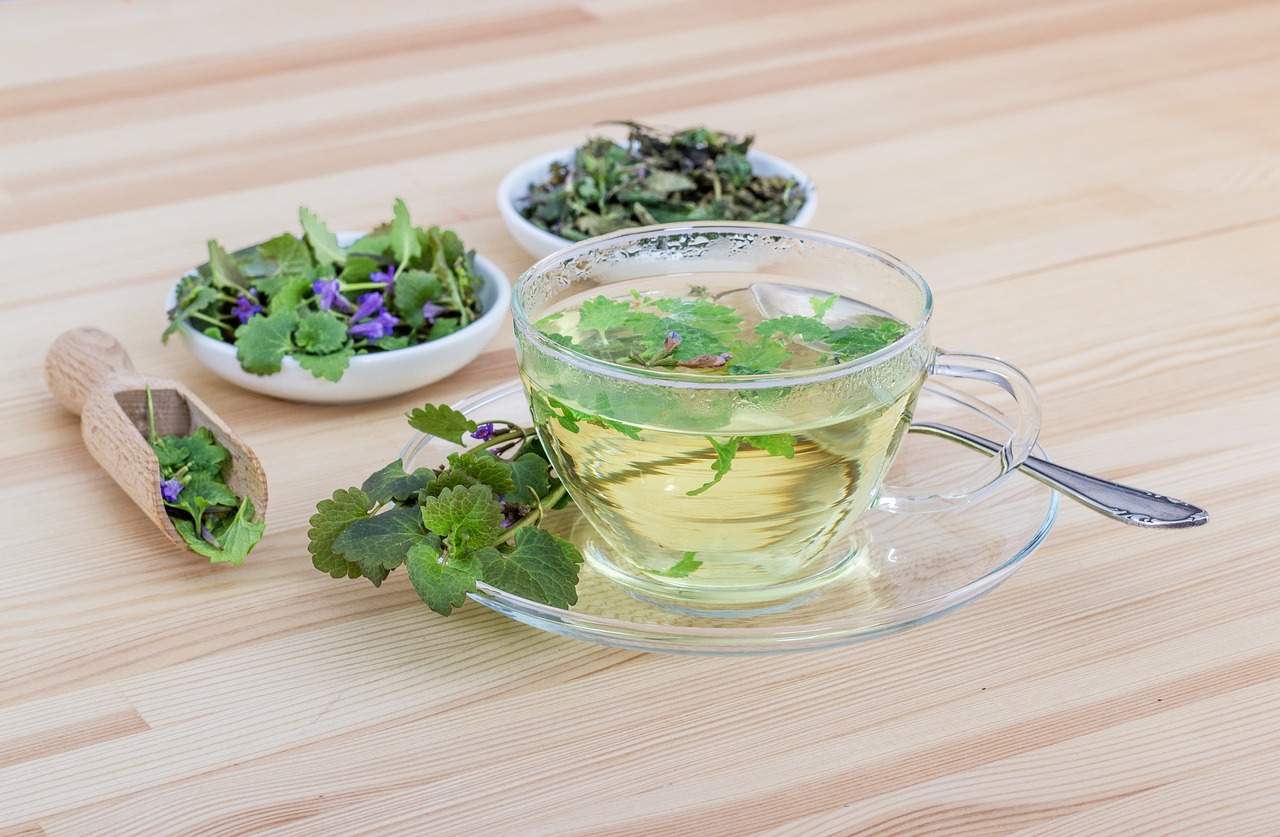Growing herbal teas on your balcony can be a fulfilling and soothing activity. Here are five easy-to-grow herbal teas, along with tips and advice for each.
1. Peppermint
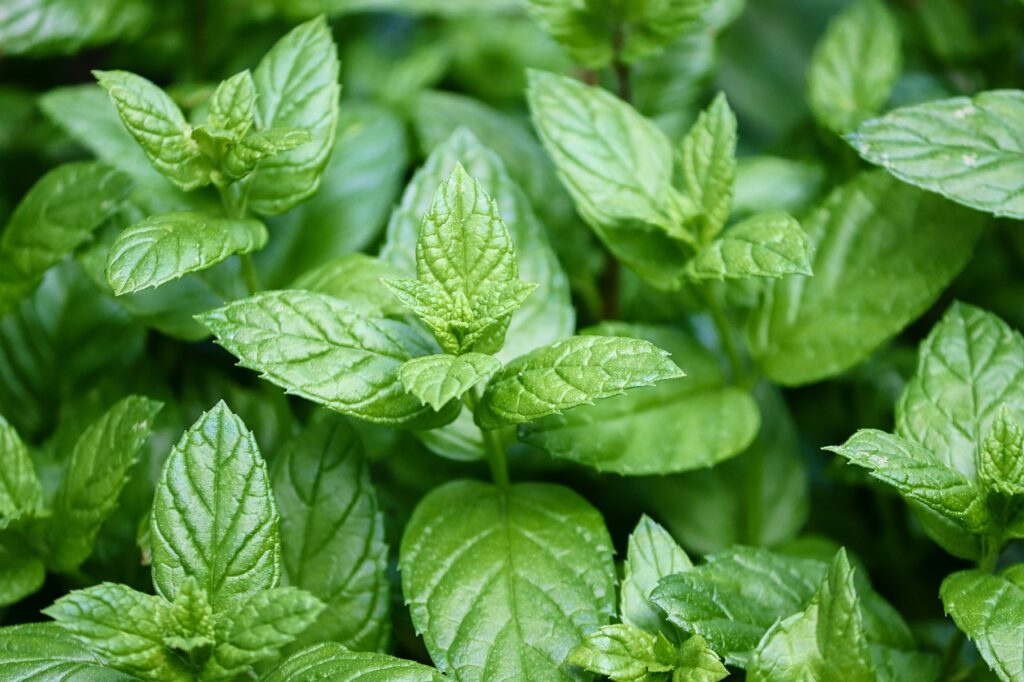
- Growing Tips:
- Sunlight: Prefers partial to full sun.
- Soil: Thrives in moist, well-drained soil.
- Watering: Keep the soil consistently moist but not waterlogged.
- Containers: Use a large pot or container to prevent spreading (mint can become invasive).
- Harvesting: Pick leaves regularly to encourage new growth.
2. Chamomile
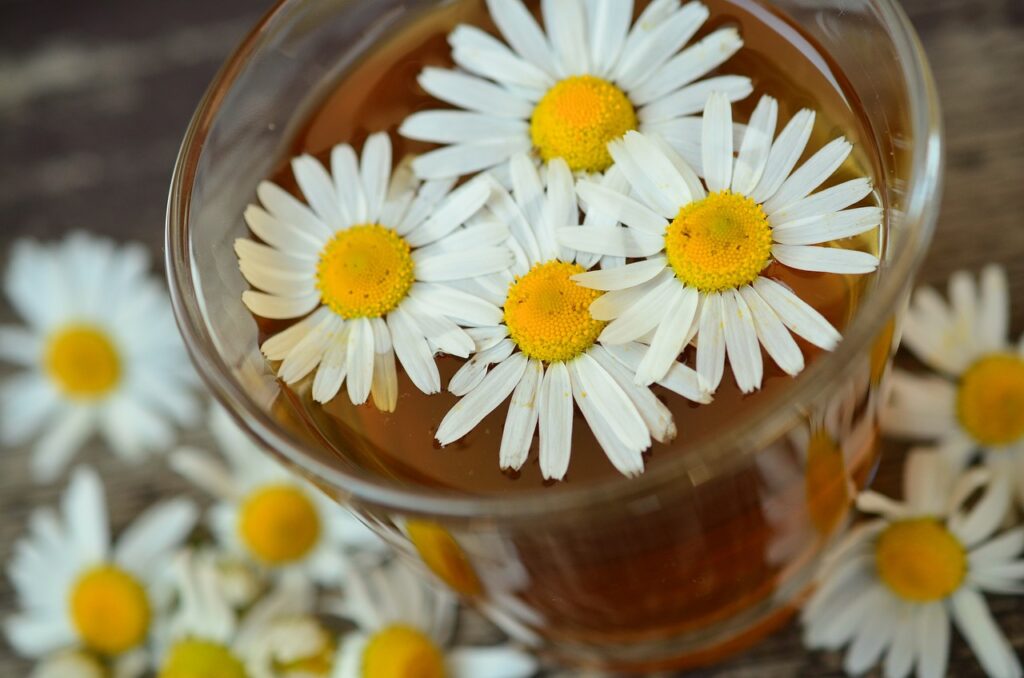
- Growing Tips:
- Sunlight: Full sun is ideal, but it can tolerate light shade.
- Soil: Prefers light, well-draining soil with a slightly acidic to neutral pH.
- Watering: Water regularly, ensuring the soil stays moist but not waterlogged.
- Containers: Use a deep container for root growth.
- Harvesting: Harvest flowers when they are fully open, usually in early summer.
3. Lemon Balm
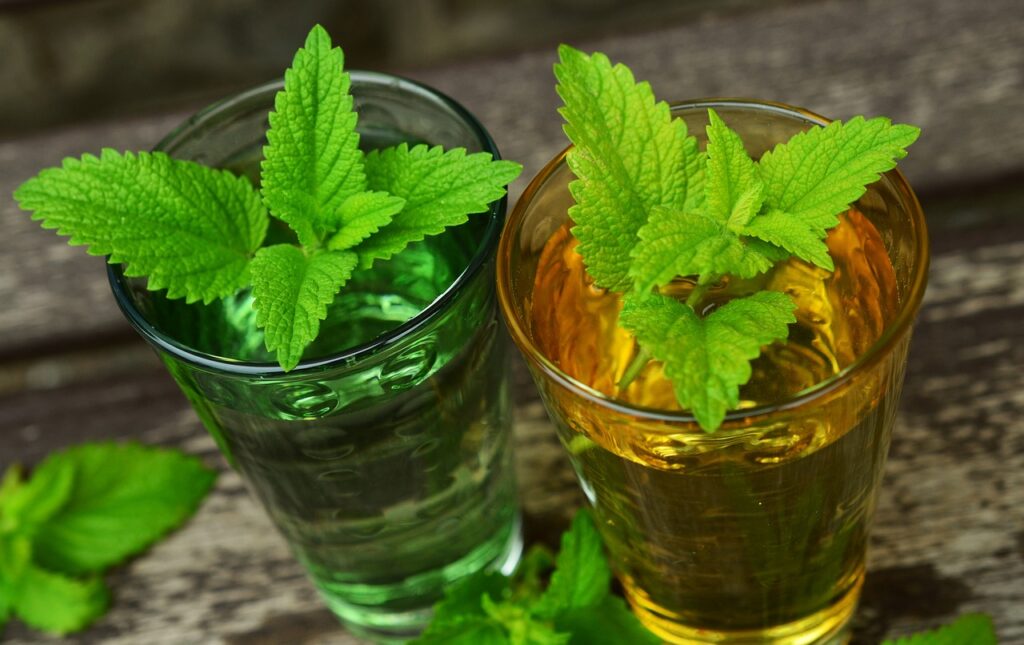
- Growing Tips:
- Sunlight: Thrives in full sun to partial shade.
- Soil: Prefers rich, moist, well-drained soil.
- Watering: Water regularly, but do not allow the soil to become soggy.
- Containers: Like mint, lemon balm can spread, so choose a larger pot.
- Harvesting: Snip leaves regularly to promote bushy growth and harvest leaves before flowering for the best flavor.
4. Lavender
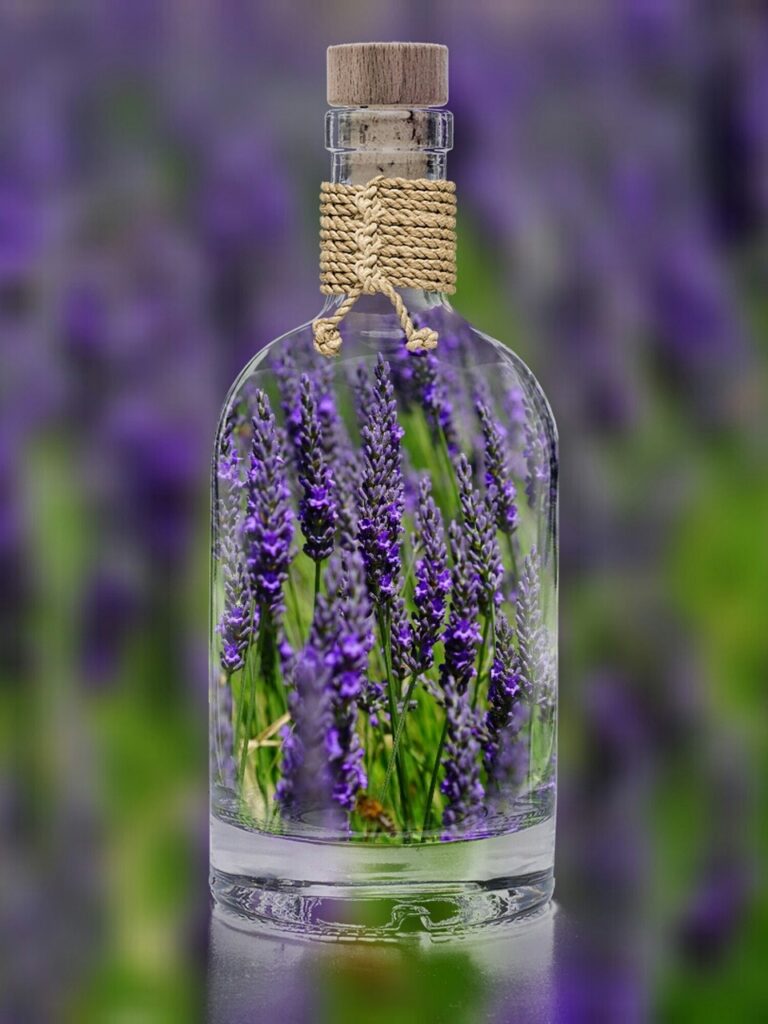
- Growing Tips:
- Sunlight: Requires at least 6 hours of direct sunlight per day.
- Soil: Well-drained, slightly alkaline soil (add some sand or gravel if needed).
- Watering: Water deeply but infrequently once established. Avoid over-watering.
- Containers: Ensure good drainage in containers. Lavender does well in pots with holes.
- Harvesting: Cut stems when flowers are in full bloom and use fresh or dried.
5. Thyme
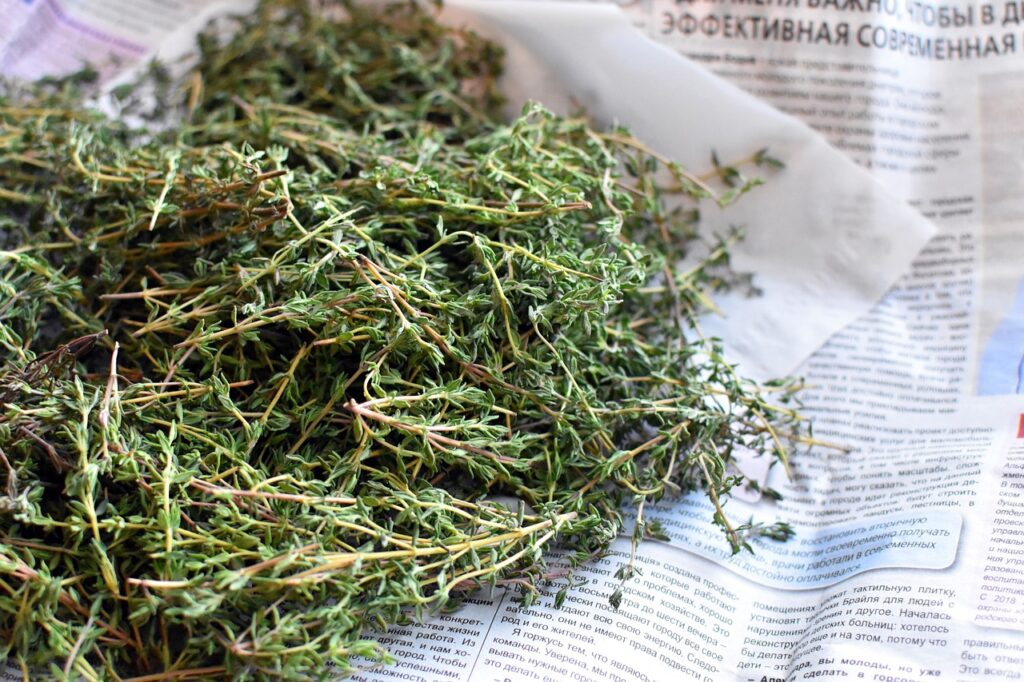
- Growing Tips:
- Sunlight: Thrives in full sun.
- Soil: Prefers light, well-drained soil.
- Watering: Water sparingly, as thyme doesn’t like soggy soil.
- Containers: Thyme does well in smaller containers but requires excellent drainage.
- Harvesting: Snip sprigs regularly to encourage growth. Best harvested before flowering.
General Balcony Gardening Tips for Herbal Teas:
- Containers: Ensure pots have drainage holes to prevent water from stagnating.
- Fertilizing: Use a balanced, organic fertilizer once a month during the growing season.
- Pests: Keep an eye out for pests such as aphids. Use natural remedies like neem oil if necessary.
- Spacing: Space plants adequately to allow air circulation and prevent mold.
- Winter Care: In colder climates, move pots indoors or cover plants with a frost cloth to protect them during winter months.
Growing herbal teas on your balcony can provide fresh, flavorful ingredients for your teas and a lovely, aromatic space to relax. Enjoy the process of nurturing your plants and harvesting the rewards!
You can source these 5 herbal teas from several places to grow them on your balcony. Here’s where to look for each:
1. Peppermint
- Garden Centers/Local Nurseries: Peppermint is a common herb found in most garden stores.
- Online Stores: Websites like Amazon, Etsy, and specialty gardening websites offer peppermint plants or seeds.
- Farmers’ Markets: Check for fresh herbs that can be propagated from cuttings.
2. Chamomile
- Garden Centers/Local Nurseries: Chamomile is widely available as seedlings or seeds.
- Online Stores: You can find chamomile seeds or plants at websites like Burpee, Baker Creek Heirloom Seeds, and Amazon.
- Herb Farms: Some herb farms specialize in chamomile and offer it for sale.
3. Lemon Balm
- Garden Centers/Local Nurseries: Lemon balm is quite common and usually available as small plants.
- Online Stores: Many gardening websites such as The Spruce, Amazon, and Etsy sell lemon balm plants or seeds.
- Herb Stores: Some health food or herbal specialty stores may carry lemon balm as part of their offerings.
4. Lavender
- Garden Centers/Local Nurseries: Lavender is a popular plant, and most nurseries will carry it in various varieties.
- Online Stores: Websites like Amazon, Etsy, and local nurseries with online catalogs sell lavender plants or seeds.
- Farmers’ Markets: You might find lavender seedlings at local markets, especially during spring and summer.
5. Thyme
- Garden Centers/Local Nurseries: Thyme is a common herb found at most local garden stores.
- Online Stores: Many online stores, such as Amazon, The Spruce, and Etsy, carry thyme plants or seeds.
- Farmers’ Markets: Fresh thyme might be available at your local farmers’ market, and you can propagate from cuttings.
Additional Tips:
- Herb Kits: Some online stores or local nurseries sell herb-growing kits that include seeds, pots, and soil.
- Plant Exchanges: Consider joining local gardening clubs or online communities where people exchange or sell plants.
- Big Box Stores: Large home improvement stores like Home Depot or Lowe’s often have garden sections with herbs.
If you’re starting from seeds, be sure to check if the variety is suitable for your growing region and climate. You can also consider buying small starter plants if you want to speed up the growing process.

